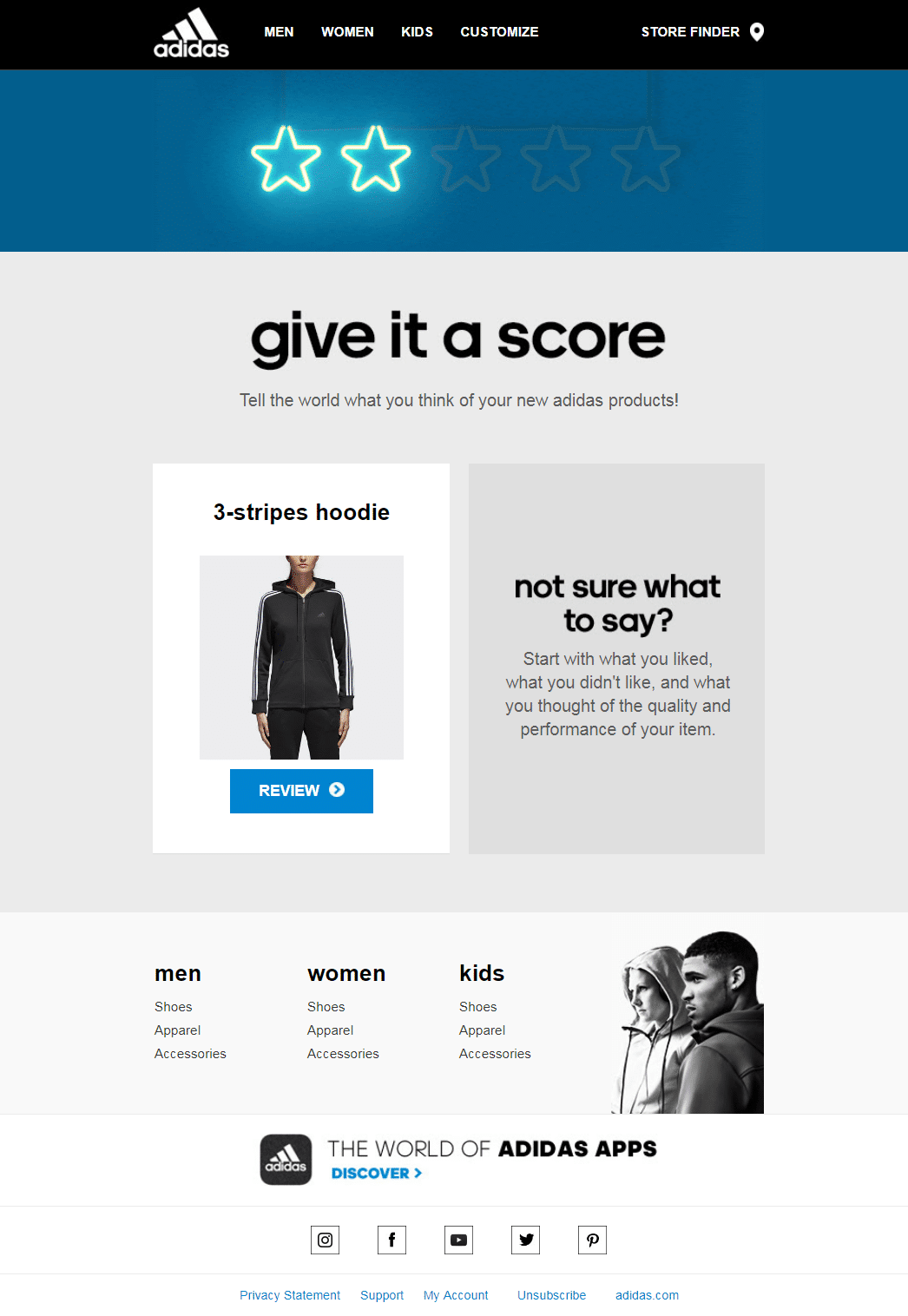Digital marketing involves plenty of moving parts: Facebook pages and advertisements, ranking in search engines, creating and promoting content from your website, staying in contact with your loyal followers, so forth and so on.
And let’s not forget that the rules, trends, and expectations change on nearly a daily basis.
According to Reuters, businesses spend about $100 billion on digital marketing globally annually—a figure that increases every year.
Keeping track of all the pieces of your email marketing strategy is a challenge, but with the right tools of online marketing, you can reach the right audiences and improve your ROI.
Vital social media tools of online marketing
Organic social media reach may be continuously declining, but as long as your audience uses social media, so you should use it, too. However, that doesn’t mean using every single channel indiscriminately.
Instead, study your ideal audience and find the social media channels they prefer. Take a smarter approach to social media with these tools of online marketing.
Facebook Audience Insights
The Facebook Audience Insights tool helps you drive the best results from every paid post you run on Facebook.
You can choose unique demographics or even create a look-a-like audience to target people similar to the followers your page already has.
To top it off, the Audience Insights tool can help you learn more about your own audience to create content they’ll love. By clicking over to “Page Likes” on the Insights tool, you can see the top pages your followers Like in different categories.
Source: Facebook
Twitter Advanced Search
Twitter’s Advanced Search will have you rethinking using Twitter for business. You can easily search by date, phrase, hashtags, location, and more to see what people are talking about.
It’s an excellent tool for identifying future trends before you write your social media posts. You can also find new accounts to follow and interact with in your industry in order to build brand awareness.
WhatsApp Business
Let’s be honest: People today would rather text than write an email or pick up a phone.
Sure, you could add a live chat to your website and take full advantage of Facebook messenger, but many people prefer to text on channels with better encryption like Telegram and WhatsApp.
WhatsApp’s more than 1.5 billion active monthly users send a whopping 60 billion messages per day.
Setting up a WhatsApp Business account can help you communicate with your audience and answer questions instantly if that’s where your audience is.
Vital email marketing tools of online marketing
How long do you spend checking out each post in your social media feeds? Probably a few seconds at the longest. The truth is people are averse to advertisements: Reuters found that roughly half of all internet users have installed ad-blocking software.
Email marketing is different. 61% of people prefer email marketing over other channels like social media because, by providing an email address, people have granted you explicit permission to contact them and they can end the conversation at any time by clicking “unsubscribe.”
Here’s the catch: You have to earn your place in each subscriber’s inbox through consistent valuable and relevant content. These tools of online marketing can help you do just that.
Automated customer journeys
Automating your emails really works: Automated campaigns like ones made through Campaign Monitor have an 86% higher open rate and a 196% higher click-through rate.
Why? Automated emails are highly relevant, and they show up in each subscriber’s inbox at the right time. Whether your automated campaign gets triggered by the subscriber’s place in your sales funnel or a specific milestone, you’ll create content tailored exactly to their interests, concerns, and questions.
You’ll start by mapping your customer journey and creating unique content for each stop along the way.
Your goal is to demonstrate value and earn your place in the inbox with interesting, educational, and valuable content.
Welcome emails, onboarding, birthdays, behavioral triggers like viewing product pages, transactional emails—these are all examples of automated campaigns with exceptionally high open rates, and engagement potential.
Source: Campaign Monitor
Insights and metrics tracking
With social media, your insights are limited. Sure, you can see reach and engagements, but that only answers a few questions about your audience and can only inform your strategy so much.
With email marketing, you can essentially put names and faces to online behavior.
When you check your advanced metrics through Campaign Monitor, you can see exactly who opens your emails, who clicks your links, who your best customers are, and so much more.
There’s no veil between you and your audience, and all the information you collect belongs to you—not Facebook or Google.
Surveys and audience feedback
Email is much more personal than social media. You can use this to your advantage with surveys and requests for feedback.
When people subscribe to your email list, you can prompt them to answer a few multiple-choice questions about their expectations for communication and the topics they want to learn about in your emails.
You can—and should—break your subscriber list into segments to create personalized surveys in addition to the personalized content you usually send your individual segments. For your most engaged subscribers who always open and click your emails, you can ask them what they love in your emails. For subscribers who open your emails but haven’t converted into customers, you can ask what’s holding them back.
You could also send out automated review requests a few weeks after a customer purchases a product in order to build that relationship with your subscribers.
Integrations
When you choose a comprehensive email service provider like Campaign Monitor, you can use it to integrate your marketing efforts across multiple platforms easily.
With Google Analytics, Salesforce, and similar services you can keep track of your customers, keep track of each platform’s results, and find new areas for improvement.
Personalization
Personalized emails provide 5.7 times more revenue than generic campaigns. Email marketing provides countless hyper-personalization opportunities through dynamic content, segmentation, and behavioral data.
Segmentation is a perfect place to start. Instead of sending the same email to your entire subscriber list, break it up into segments based on age, gender, location, job title, parental status, and any other information you have that’s relevant to your content. You can then create relevant campaigns for each group.
Here’s an example of a highly personalized and automated survey campaign from Adidas that went out five days after the customer completed her purchase.

Vital search engine optimization tools of online marketing
Don’t get frustrated if your Google rankings aren’t amazing right off the bat. It takes time to prove that your content is worthy of making the first page of search results.
The tools of online marketing below can help in your pursuit of that coveted first spot.
Google Analytics
Google Analytics is a must-have for monitoring your organic traffic—but simply logging into your account and checking stats isn’t enough.
You also need to take advantage of Google’s advanced API capabilities by integrating your Google Analytics account into WordPress, Campaign Monitor, and all of your other digital marketing channels.
SEMrush
A comprehensive keyword research tool like SEMrush or KWfinder is crucial for optimizing your search engine presence.
These tools can also help you track your position, backlinks, and keep an eye on your competitors.
Yoast
Every WordPress user needs the Yoast plugin on their website to support their SEO efforts.
Without a plugin to help you track your SEO potential as you write, you’re really just making a lot of guesses. Plus, you can preview how your post or page will look on social media or in search results.
Vital content marketing tools of online marketing
Content marketing isn’t just important for SEO; it helps demonstrate your value to website visitors and current customers.
Use these tools of online marketing to build your authority and gain a loyal following online.
Authoritative and relevant blog posts
Pumping out as many blog posts as possible without giving much thought to quality or nuance won’t help your Google ranking or your business.
As a general rule of thumb, check out the top-three ranking pieces for your keyword. Use these to draw inspiration and figure out how you can add a new angle or update information.
Google rewards websites that create content people want to read. And that content should be well-researched, over 1,000 words, interesting, and mobile-friendly.
Guest posting and syndication
Platforms like Medium or industry-specific blogs provide a much longer half-life for your content than social media. Plus, you have a chance to reach fresh audiences that otherwise may not come across your thoughts or website.
Multimedia content
One-third of all online activity is spent watching videos, and 51% of people say they listen to podcasts at least once each month.
Think back to your schoolhouse days when the teacher explained different learning styles: Some people are visual learners while others learn better through listening.
Instead of investing in audio, video, and visual format and hoping something sticks, figure out which format your audience prefers by keeping an eye on your engagement.
Wrap up
The right tools for online marketing can help you stay organized while building relationships with leads and current customers.
- Use social media to your advantage but not as a final solution.
- Prioritize channels you completely control like email and your website’s content.
- Personalize email marketing content as much as possible.
- Use automation to save you time and resources.
At the end of the day, you want to stay in contact with your customers and build your brand. With digital marketing, you have two choices: spend a ton of money on flashy tools or build a comprehensive strategy focused on long-term growth.
Ditch social media algorithms and start building your email list. Check out how Campaign Monitor can help you create personalized customer journeys for every stage of the sales funnel.







